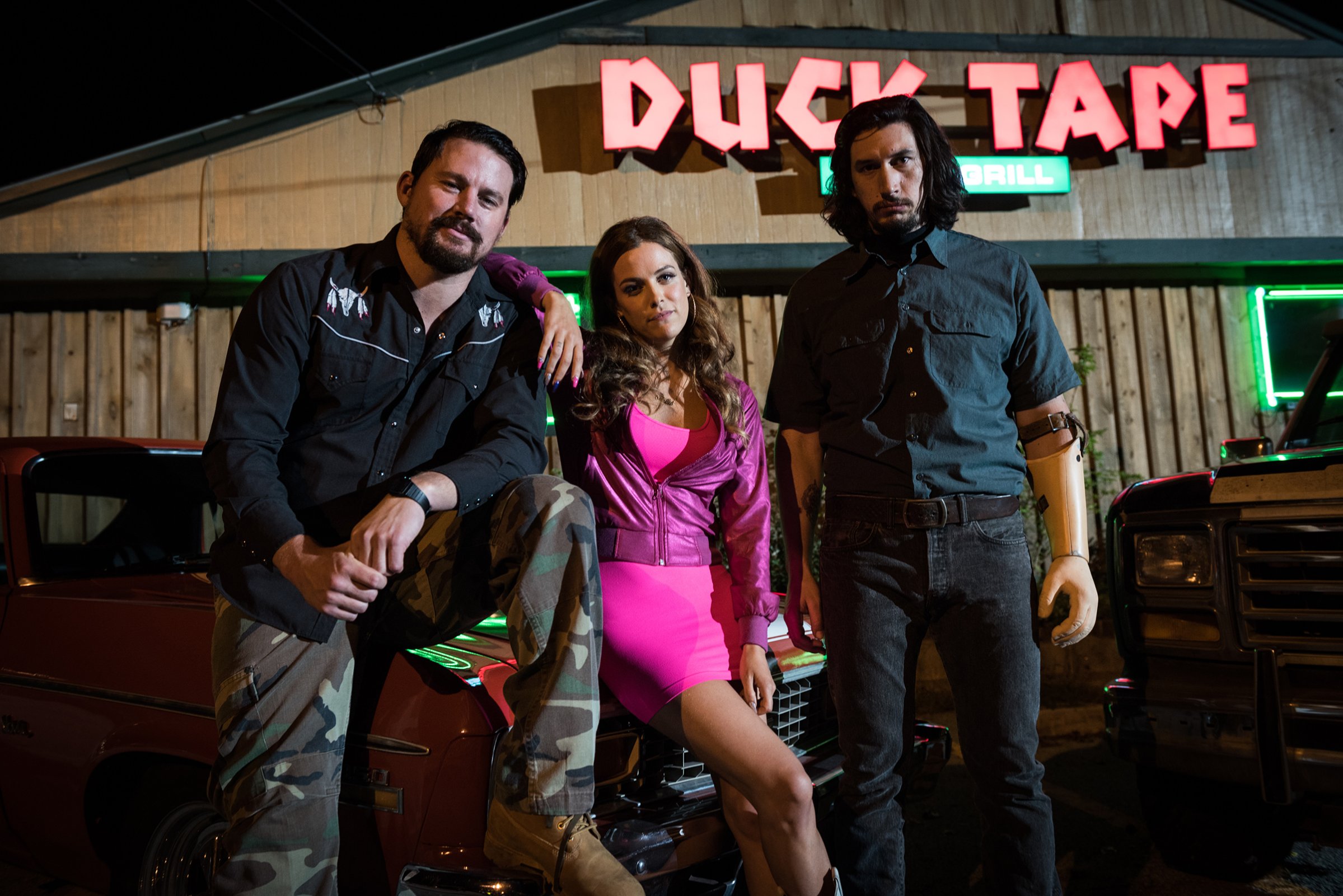
Forget, for a moment, screenplays and cinematography, editing and performances. The most underrated tool for assessing the worth of a movie is generosity of spirit: How does a filmmaker treat his characters, and what does that say about his view of the world? Steven Soderbergh’s heist comedy Logan Lucky–starring Channing Tatum as a divorced West Virginia dad who, out of desperation, masterminds an elaborate robbery of North Carolina’s Charlotte Motor Speedway–is one of the director’s most exuberant pictures. And it riffs on the best impulses of humankind rather than the worst.
Tatum’s Jimmy Logan appears to be a victim of the family curse: a bum leg has led to the loss of his job, and his ex-wife (Katie Holmes) has told him she’s moving to another state, taking the couple’s pigtailed mite of a daughter (Farrah Mackenzie) with her. Jimmy entices his bartender brother Clyde (Adam Driver), who lost part of his arm in Iraq, and his tough-cookie hairstylist sister Mellie (Riley Keough) to join him in stealing a bunch of loot. This requires busting the local explosives expert, Joe Bang (Daniel Craig), out of prison. The master plan includes fake salt, cockroaches painted with nail polish and a chalkboard equation explaining the science behind making a big boom. “Or as I like to call it,” Joe says, “a Joe Bang.”
This messy hash of flimflammery comes together, in the end, with ace line-cook clarity. But the pleasures of Logan Lucky go far beyond its mechanics. The actors are all marvelous, and their characters defy cartoonishness even as they dare us to see them only as cartoons. Logan Lucky is close in tone to Soderbergh’s superb Out of Sight (1998), adapted from material by the great Elmore Leonard. Leonard could concoct dazzling plots, but he was really more interested in exploring why humans think as they do–and teasing out twinges of recognition in all of us. The Logan Lucky script is attributed to one Rebecca Blunt, who is rumored to be a fictitious person. If only more not-fictitious people could write scripts like this. Soderbergh financed it independently, without big studio money, creating a magnificent movie that comes disguised as a modest one. Or as I like to call it, a Joe Bang.
More Must-Reads from TIME
- Donald Trump Is TIME's 2024 Person of the Year
- Why We Chose Trump as Person of the Year
- Is Intermittent Fasting Good or Bad for You?
- The 100 Must-Read Books of 2024
- The 20 Best Christmas TV Episodes
- Column: If Optimism Feels Ridiculous Now, Try Hope
- The Future of Climate Action Is Trade Policy
- Merle Bombardieri Is Helping People Make the Baby Decision
Contact us at letters@time.com